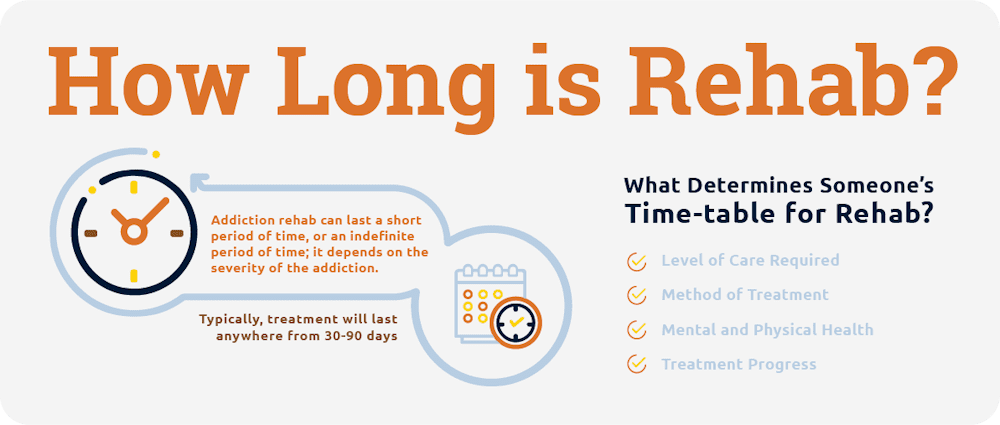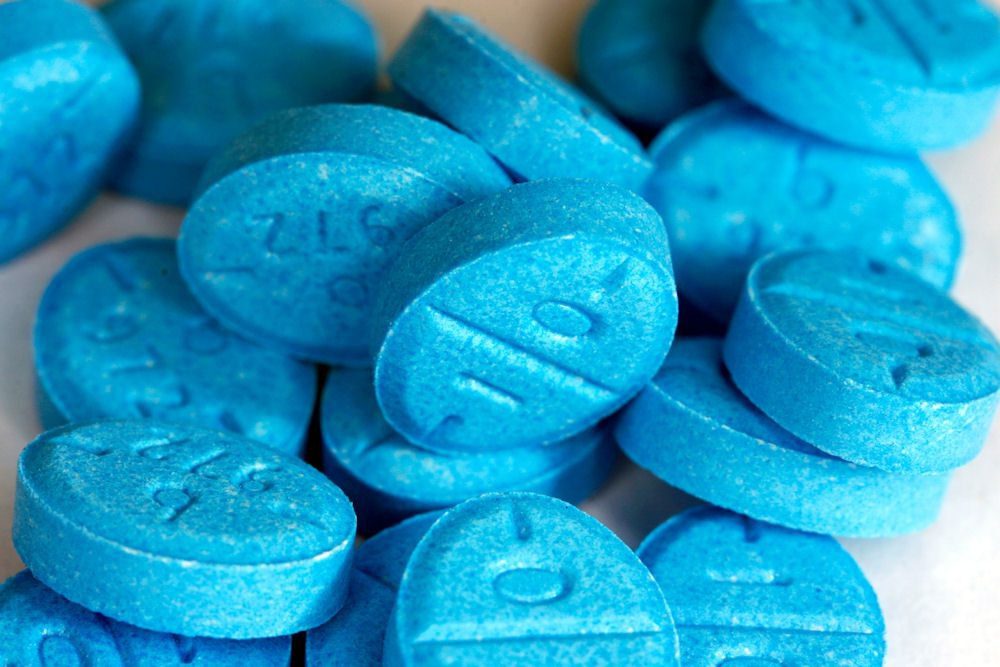How Long Does Rehab for Substance Abuse Last?
Deciding or agreeing to begin addiction treatment for a substance use disorder is the first step in the recovery process. A process that will help you heal from addiction and deal with its root causes. When starting an addiction treatment program, you will likely have many questions. These can include what treatment will be like, and how long is rehab?
The length of a rehabilitation program depends on a few different factors. How long you should stay in a program may differ from someone else with the same substance use disorder. The type of substance you use, how long you have been using it, and the severity of your addiction all play a role in how long rehab should last.
Other considerations include if you have any other mental health disorders and if you have gone through treatment before. The most important factor in deciding how long to stay in rehab is what is best for you. No two cases of substance abuse are the same, so your treatment plan will also be unique so that it fits your needs.

Jump to Section
How Long is Rehab: The Length of Substance Abuse Treatment


If you are wondering how long is rehab, there are many elements of the addiction recovery journey to consider. Many people begin their recovery with detox services. Detox is a process of ridding the body of drugs or alcohol. It can take anywhere from a few days to a week. After detox, you will begin addiction treatment services.
Treatment for substance abuse can vary in length and intensity. Some people may only need outpatient treatment, which can last a few weeks to a few months. Others may require more long-term options such as a long-term inpatient program, which can last 90 days or more. Additionally, after completing an addiction treatment program, you may require an aftercare program or sober living arrangement.
The Different Types of Substance Abuse Treatment Programs
If you are wondering how long is rehab, you may also want to know what types of programs exist. Here is a brief overview of some common addiction treatment programs and how long they typically last:
- Outpatient Treatment: Outpatient treatment is the most common type of treatment. It allows you to live at home and continue working or going to school while receiving treatment. There are different levels of outpatient care, which can last from a few weeks to a few months.
- Intensive Outpatient Programs (IOP): IOPs are a step up from outpatient care, and usually last between 3-6 months. With IOP, you will typically meet 3-5 times per week for group and individual therapy sessions.
- Partial Hospitalization Programs (PHP): PHP is the highest level of care offered on an outpatient basis. It is usually only recommended for those who have completed inpatient treatment and are in need of a higher level of care than IOP can provide. PHP typically lasts 4-6 weeks.
- Inpatient addiction treatment: Inpatient addiction treatment is the most intensive level of care and usually requires that you stay at the treatment facility for 30, 60, or 90 days. Inpatient treatment usually includes 24-hour support and supervision, as well as individual and group therapy sessions.
No matter what type of treatment you choose, the length of time you spend in treatment will be based on your individual needs. Some people may need to stay in treatment for a longer period of time than others in order to achieve sobriety.
What Determines How Long Rehab Is?
There is no simple answer to how long is rehab. The length of treatment that you need will depend on several factors. These include the severity of your addiction, how long you have been using drugs or alcohol, your mental and physical health, and your personal support system. Other factors that affect how long you will be in rehab include the following:
- The level of care needed: The level of care that you need will be based on how severe your addiction is. If you have a milder addiction, you may be able to attend an outpatient program, which allows you to live at home while attending treatment during the day. If you have a more severe addiction, you may need to stay in a residential treatment program, where you will live at the treatment center.
- The type of program: The length of the program will also be based on the type of program that you choose. For example, some programs may last 30 days, while others may last 60 or 90 days.
- Your mental and physical health: Your overall mental and physical health will also play a role in the length of the treatment program. If you are dealing with other mental health issues, such as depression or anxiety, you may need to stay in treatment for a longer period of time.
- Your progress in treatment: The speed of your progress in treatment will also play a factor in how long you stay in rehab. If you are doing well and progressing quickly, you may be able to finish at a relatively quicker pace than an individual who is progressing slowly.
No matter how long rehab lasts, it is important to remember that recovery is a lifelong process. Even after completing an addiction treatment program, you will need to continue working on your sobriety. This may include attending support groups, such as Alcoholics Anonymous or Narcotics Anonymous, and meeting with a therapist or counselor on a regular basis.
The Benefits of 30, 60, and 90-Day Programs
When discussing how long is rehab, it is also important to understand the benefits of the different program lengths.
The Benefits of a 30-Day Program
A 30-day rehab program is typically the shortest length of stay available. While this may not seem like enough time to recover from an addiction, a 30-day program can be very beneficial. It provides individuals with structure and support while they detox and begin to learn how to live a sober life.
The Benefits of a 60-Day Program
A 60-day rehab program is slightly longer than a 30-day program. It can provide individuals with the extra time they need to recover from an addiction. This type of program offers individuals more time to detox and participate in therapy. It also allows them to slowly transition back into their everyday life.
The Benefits of a 90-Day Program


It is important to remember that the length of time you spend in treatment is dependent on your needs. This holds true no matter what type of rehab program you choose. Additionally, many people choose to move through levels of care rather than complete a single type of program.
For example, an individual may begin with inpatient care. After completing inpatient care, they may move to a partial hospitalization program. Once they have stabilized, they may then transition to an outpatient program. The most important thing is that you find the type of care that works for you and that you stick with it for as long as you need. Recovery is a journey, not a destination, and it is important to take the steps necessary to live a healthy and sober life.
The Advantages of Long-Term Addiction Treatment
While there is no one-size-fits-all answer to the question of how long is rehab, research does suggest that people who participate in long-term treatment have better outcomes. In general, the longer you stay in treatment, the better your chances of staying sober. This is, in part, due to prolonged participation in therapeutic interventions such as:
- Individual therapy
- Group therapy
- Family therapy
- Cognitive-behavioral therapy
- Dialectical behavior therapy
- Gender-specific therapy
- Holistic therapies
- Yoga therapy
In addition to the therapeutic interventions noted above, long-term addiction treatment also provides individuals with the opportunity to practice new skills and behaviors in a safe and supportive environment. This allows people in treatment to develop a solid foundation for recovery before they reenter the world outside of the treatment center.
Recovering from Addiction with Northern Illinois


Addiction is a progressive disease, and it will only get worse over time. Contact Northern Illinois Recovery today to learn more about our treatment programs. We can discuss with you how we can help you heal from addiction.


Licensed Physician and Surgeon
Dr. Beth Dunlap, a board-certified addiction medicine and family medicine physician, and is the medical director at Northern Illinois Recovery Center. She is responsible for overseeing all the integrated medical services at both campuses. Beth completed medical school, residency, and fellowship at Northwestern University, where she continues to serve on the faculty as a member of the Department of Family and Community Medicine. She has extensive experience in addiction medicine at all levels of care, and her clinical interests include integrated primary care and addiction medicine, harm reduction, and medication-assisted treatment.













